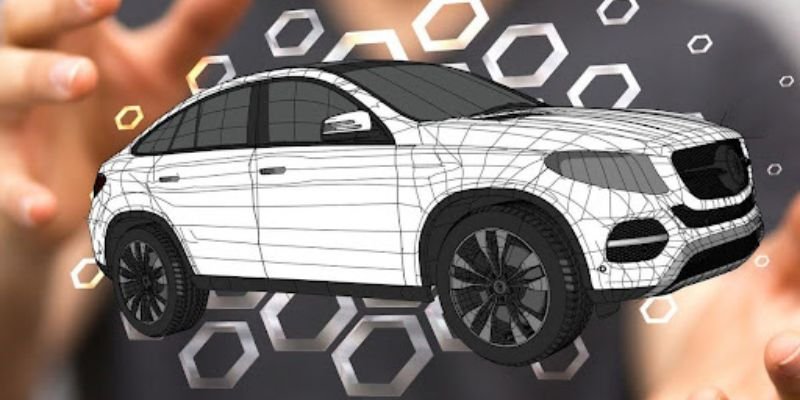At some point, your car will need an upgrade. Even the best brands eventually wear out. You might know when it’s time to upgrade, like when your car stops working altogether. But waiting until then isn’t a good idea. It could break down at the worst moment, like on a dark highway. So, figuring out when to upgrade is important. It’s different for everyone.
Upgrading can be fun. You might want better performance, a nicer look, or new features. But it’s important to think carefully. You need to make sure the changes match what you want and what you can afford. Safety and following the law are also important. So, before you dive into Upgrading Your Car, consider these factors carefully. And remember, like a number plate 4D, your upgrade should be unique and personal to you. Here are some key factors to consider before diving into car upgrades.
Define Your Goals:
Before embarking on any upgrades, clearly define what you aim to achieve. Whether it’s increasing horsepower, enhancing handling, or simply enhancing the appearance, having specific goals will help guide your decisions throughout the upgrade process. Set a realistic budget for your upgrades, considering both the cost of parts and potential labour fees if you’re not performing the upgrades yourself. Remember to allocate funds for unexpected expenses that may arise during the process
Check Your Brake System:
Many people forget to inspect their car’s brake system, which can be surprising considering that faulty brakes are a leading cause of car accidents. Regular brake maintenance is crucial to ensure your safety on the road. As you plan to upgrade your car, it’s essential to assess its overall condition, including the brakes, to avoid unexpected expenses during the upgrade process.
Neglecting brake maintenance can lead to additional costs and potential safety hazards. Make it a habit to check your brake pads, brake fluid levels, and brake lines regularly. Any signs of wear or deterioration should be addressed promptly to maintain optimal braking performance. By prioritising brake maintenance, you can enhance the safety and reliability of your vehicle, contributing to a smoother upgrade experience.
Check Your Wallet:
Car upgrades can come with a hefty price tag, so it’s crucial to assess your financial situation before proceeding. Take a close look at your wallet or bank account to determine if you have sufficient funds to cover the desired upgrades. Many car owners opt to upgrade their vehicle’s parts gradually to manage costs effectively. This approach allows them to spread out expenses over time and avoid feeling overwhelmed by the total cost of upgrades.
Alternatively, some car owners choose to invest in comprehensive upgrades, either focusing on specific areas or opting for a full-body makeover. Regardless of your preferred upgrade strategy, it’s essential to establish a realistic budget and stick to it to avoid financial strain. Consider exploring financing options or saving up before initiating any upgrades to ensure a smooth and financially responsible process. By carefully assessing your financial resources and planning accordingly, you can embark on the upgrade journey with confidence, knowing that you’re making informed decisions aligned with your budgetary constraints.
Axle Ratio Upgrades:
Pickup truck owners often opt for axle ratio upgrades to enhance their vehicle’s capabilities, especially in terms of towing capacity. By increasing the axle ratio, the transmission and engine can deliver more torque, making towing easier and more efficient. This popular modification has been favoured by truck owners since its inception due to its ability to improve overall performance.
When considering an axle ratio upgrade, it’s essential to research thoroughly and consult with experts to ensure compatibility with your specific vehicle model. Additionally, factor in how the upgrade will impact fuel efficiency and driving dynamics to make an informed decision that aligns with your needs and preferences.
Check Your Air Filter:
The air filter is a vital component of your vehicle’s engine, yet it often goes unnoticed by many car owners. Over time, the air filter can become clogged with dirt and debris, hindering airflow and potentially causing the engine to overheat. Regular maintenance of the air filter is crucial to ensure optimal engine performance and longevity. If you haven’t replaced your car’s air filter in years, it’s time to visit a mechanic shop to have it inspected and replaced if necessary.
By maintaining a clean air filter, you can safeguard your engine against damage and ensure efficient combustion, contributing to overall vehicle reliability. Prioritising air filter maintenance before pursuing any upgrades ensures that your vehicle’s foundational components are in top condition, laying the groundwork for successful enhancements.
Conclusion:
Upgrading your car can be a rewarding experience, but it requires careful planning and consideration of various factors. Whether you’re seeking performance gains, aesthetic enhancements, or both, thoughtful planning will help you achieve your desired results while maintaining the integrity and reliability of your vehicle.















